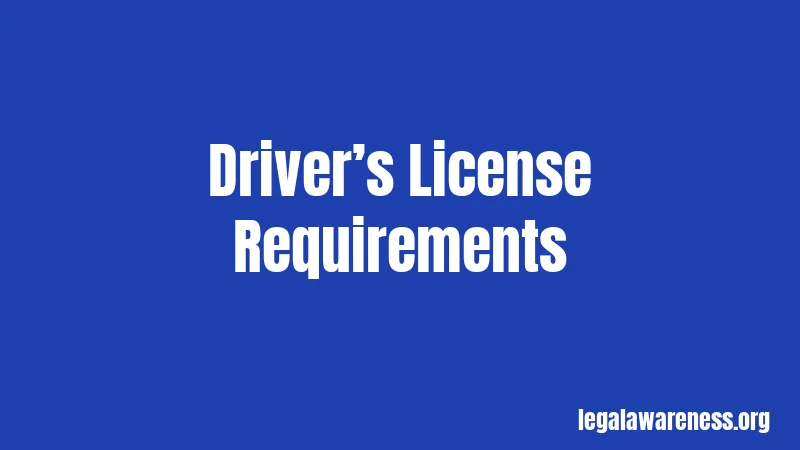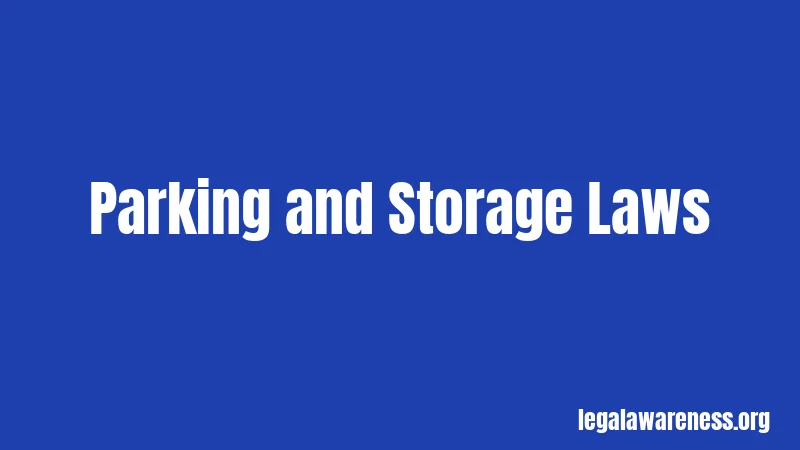RV Laws in Florida (2026): Everything You Need to Know
Florida is one of the most RV-friendly states in America. The Sunshine State welcomes recreational vehicles with open arms year-round. This guide explains the essential laws and rules you need to follow when owning, driving, or parking your RV in Florida.
Whether you’re planning to live in your RV full-time or just visiting for the winter, knowing these laws will help you avoid fines and enjoy your Florida adventure.
What Is an RV Under Florida Law?

Florida defines a recreational vehicle as any unit designed for temporary living during recreational, camping, or travel activities. This includes motorized RVs and trailers that are towed.
The law covers all types of RVs. These include Class A, B, and C motorhomes, travel trailers, fifth wheels, pop-up campers, and truck campers. Even park trailers count as recreational vehicles under Florida law.
All RVs must meet state requirements for registration and operation. The rules apply whether you own the RV or are renting one for vacation.
Basic RV Registration Laws
Registration Requirements
Every RV in Florida must be registered with the Department of Highway Safety and Motor Vehicles. This applies to both motorized RVs and trailers. You cannot legally drive or tow an unregistered RV on Florida roads.
You must register your RV within 10 days of establishing Florida residency. This includes when you enroll children in public school, take a job, or start living in Florida permanently.
Required Documents
To register your RV, you need several important documents. You must have the original title or loan information if there’s a lien. You need proof of Florida insurance from a licensed agency. A completed Application for Certificate of Title form is required.
You also need your vehicle identification number verified. A Florida police officer, notary public, or DMV employee can do this verification. Without proper VIN verification, you cannot complete registration.
Driver’s License Requirements

Standard License Is Usually Enough
Most RV owners can drive their recreational vehicle with a regular Class E driver’s license. This covers RVs weighing 26,000 pounds or less. Most RVs fall under this weight limit.
Florida does not require special RV licenses for personal use. You don’t need a commercial driver’s license for your own RV. This makes Florida very RV-friendly compared to other states.
When You Need a CDL
You only need a Commercial Driver’s License if your RV weighs more than 26,000 pounds. You also need a CDL if you’re using the RV for commercial purposes. Driving RVs for business or rental companies requires proper commercial licensing.
Very large Class A motorhomes might exceed the weight limit. Check your RV’s gross vehicle weight rating to be sure. If you’re unsure, contact the Florida DMV for guidance.
Registration Fees and Costs
Basic Registration Fees
Florida charges different fees based on your RV’s weight. RVs under 4,500 pounds cost $27.60 annually to register. Those weighing 4,500 to 5,999 pounds cost $47.60 per year.
Heavier RVs pay higher fees. The maximum annual fee is $81.60 for the largest recreational vehicles. These fees help maintain Florida’s roads and infrastructure.
Initial Registration Costs
First-time registrants pay a one-time $225 initial registration fee. This applies if you’ve never owned a registered vehicle in Florida before. You can avoid this fee if you previously owned a Florida-registered vehicle.
Sales tax may apply to RVs purchased within six months of registration. You must provide documentation of sales tax already paid to reduce this cost.
Parking and Storage Laws

Private Property Rules
You can park your RV on your own property in most Florida cities. However, you cannot park it in your front yard. RVs must be parked in backyards or side yards only.
Most cities allow only one RV per property. The RV must be properly registered and maintained. Local zoning laws may have additional restrictions on RV parking.
HOA Parking Rules Changed in 2024
A major law changed HOA parking rules on July 1, 2024. House Bill 1203 now limits HOA power over RV parking. HOAs can no longer ban RVs from your property if they’re not visible from the front.
RVs must not be visible from your property’s front view, adjacent properties, common areas, or golf courses. If your RV meets these visibility requirements, HOAs cannot prohibit it. This gives Florida homeowners much more freedom.
Size and Towing Regulations
Maximum Dimensions
Florida sets strict limits on RV size for road travel. The maximum combined length for a vehicle and trailer is 65 feet. Individual trailers cannot exceed 53 feet in length.
The maximum width is 8 feet 6 inches. Height cannot exceed 13 feet 6 inches. Exceeding these dimensions requires special permits from the Florida Department of Transportation.
Towing Requirements
When towing an RV, you must have functional lights and safety chains. Your towing vehicle must be rated for your trailer’s weight. All towing equipment must meet safety standards.
Trailers over 3,000 pounds need independent braking systems. You must also have proper mirrors for visibility. Failure to meet towing requirements can result in fines and safety violations.
Living in Your RV Full-Time
Legal Full-Time Living
Florida allows full-time RV living if you meet local regulations. Your RV must be connected to utilities like water, sewer, and electricity. It must also meet local building and safety codes.
Different cities and counties have varying rules about permanent RV living. Some areas welcome full-time RVers while others restrict it. Always check local laws before establishing permanent residence.
Campground Options
Florida offers excellent long-term RV campgrounds for full-time living. Many parks allow permanent residents with annual discounts available. State parks also provide long-term camping options.
You can stay in most RV parks indefinitely as a permanent resident. After six months in one location, different tenant laws may apply. This provides additional legal protections for long-term residents.
Special Circumstances
Temporary Living on Agricultural Property
Rural agricultural properties have special RV rules. You can use an RV for temporary shelter on agricultural land with existing dwellings. The RV must be self-contained or properly connected to utilities.
Stays are limited to visits by property owners, friends, and family. Commercial RV rentals on agricultural property have different restrictions. Check with your county planning department for specific rules.
Hurricane and Emergency Use
RVs damaged by hurricanes or natural disasters can be rebuilt using original density standards. This helps RV park owners recover from storm damage. Emergency shelters may have temporary RV placement rules.
Local governments may suspend some RV restrictions during emergencies. These temporary measures help displaced residents find immediate housing. Check with emergency management offices during disasters.
Insurance Requirements
Mandatory Coverage
All motorized RVs must have Florida insurance from a licensed agency. Insurance companies report policies electronically to the DMV. You cannot register your RV without proper insurance coverage.
Your insurance must meet Florida’s minimum coverage requirements. This includes property damage and bodily injury protection. Uninsured RV operation results in license suspension and fines.
Travel Trailers and Insurance
Towable RVs may be covered under your vehicle’s insurance policy. However, many people choose separate RV insurance for better protection. RV insurance covers unique risks like awning damage and personal belongings.
Standard car insurance doesn’t usually cover RV-specific situations. Consider specialized RV insurance for comprehensive protection. This is especially important for expensive motorhomes and large trailers.
Violations and Penalties
Common Violations
The most common RV violations involve registration and parking. Unregistered RVs can be impounded and fined. Improper parking results in citations and removal orders.
Oversized RVs without permits face substantial fines. Towing violations can result in roadside safety inspections. Insurance violations lead to license suspension and vehicle impoundment.
Fine Amounts
Registration violations typically cost $25 to $100 in fines. Parking violations range from $50 to $500 depending on the location. Oversized vehicle fines can exceed $1,000 plus permit costs.
Insurance violations carry the highest penalties. You face license suspension, vehicle impoundment, and reinstatement fees. These costs can easily exceed $2,000 in total expenses.
How to Stay Compliant
Keep Documents Current
Always carry current registration and insurance papers in your RV. Keep your driver’s license valid and up to date. Check expiration dates regularly to avoid lapses in coverage.
Renew your RV registration before it expires. Florida allows online renewal in many cases. Set calendar reminders for important renewal dates.
Know Local Rules
Research local parking and living restrictions before traveling. Cities and counties can have stricter rules than state law. Contact local code enforcement offices when you’re unsure about regulations.
HOA rules may still apply even after the 2024 law changes. Read your community’s covenants and restrictions carefully. When in doubt, consult with local authorities or legal professionals.
Recent Law Changes
2024 HOA Reforms
House Bill 1203 significantly changed HOA parking rules in July 2024. HOAs can no longer automatically ban RVs from private property. The visibility requirements give homeowners much more freedom.
This law also protects first responders who need to park work vehicles at home. Emergency workers can park assigned vehicles on public roads within HOA communities.
Future Changes
Florida continues to make the state more RV-friendly. Legislators regularly review and update RV-related laws. Stay informed about changes that might affect your RV ownership or travel plans.
The Florida RV Trade Association provides updates on new legislation. Following their communications helps you stay current with law changes.
Frequently Asked Questions
Do I need a special license to drive an RV in Florida?
No, most RV owners can use their regular Class E driver’s license. Only RVs over 26,000 pounds or commercial operations require special licensing.
Can HOAs ban RVs from my property?
Not anymore, as long as your RV isn’t visible from the front, adjacent properties, common areas, or golf courses. The 2024 law change protects most RV parking situations.
How much does it cost to register an RV in Florida?
Annual fees range from $27.60 to $81.60 based on weight. First-time registrants pay an additional $225 initial fee unless they previously owned a Florida vehicle.
Can I live in my RV full-time in Florida?
Yes, if you meet local regulations and connect to proper utilities. Different counties have varying rules, so check local requirements before establishing permanent residence.
What happens if I get caught with an unregistered RV?
You face fines ranging from $25 to $100, and your RV can be impounded. You’ll also need to pay all back registration fees and penalties before recovering your vehicle.
Final Thoughts
Florida welcomes RV enthusiasts with reasonable laws and beautiful weather year-round. Following these basic rules ensures you can enjoy everything the Sunshine State offers. Keep your registration current, maintain proper insurance, and respect local parking restrictions.
The 2024 HOA reforms made Florida even more RV-friendly for property owners. Whether you’re visiting for a weekend or living full-time, understanding these laws helps you avoid problems and enjoy your Florida RV experience.
Remember that local laws can be stricter than state requirements. When in doubt, contact local authorities for guidance. Safe travels and enjoy your Florida RV adventures!
